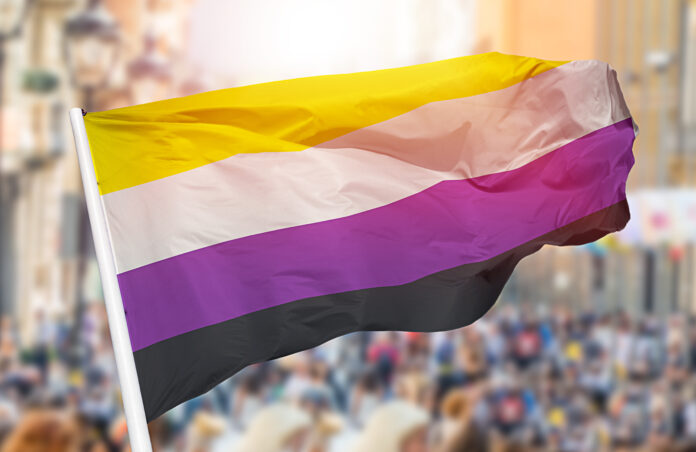Last year, I came out as nonbinary and started using they/them pronouns amongst close friends. At that time, I was working at a marketing agency where the employees were mostly straight, cis and — to the best of my knowledge — Republican. I didn’t really make it a point to come out to my fellow co-workers. But my immediate supervisor, who caught wind of my newly recognized identity on social media, started using my new pronouns. It wasn’t even a conversation. He just started referring to me the way I desired.
It was even more surprising when my supervisor’s boss sent me a message on Slack stating, and I paraphrase, “Hey, I noticed that some people have been referring to you with ‘they’ pronouns so I wanted to hear from you what your preferred pronouns are so that I can address you respectfully.” I was very grateful for that. A company made up of mostly straight cis people from various age groups and political affiliations were quick to respect my identity. Some mistakes were made with a few he/him slip ups but for the most part, people corrected themselves.
Having such a positive experience at this company empowered me to come out as my full self upon returning to work at PGN. When I first worked full-time at PGN 2016-2018, I only identified as gay and that label — along with my gender — has shifted over the past five years. Now that I was the editor of an LGBTQ+ publication, it was important for me to be my full self amongst my colleagues, PGN’s readership and the overall community PGN works with. I wanted to show my community that I was proud of who I was. I assumed they would embrace me quickly.
I assumed incorrectly.
I have actually gotten misgendered more while working for an LGBTQ+ publication than I did while working with majority cis het people. Even with my pronouns on full display in my email signature and Zoom display name, I still get referred to as he/him. I find myself constantly correcting certain community members during meetings, and — not that I care — it usually seems like I’m inconveniencing them. It felt very strange to do this with members of my own community.
This is not limited to work situations either. There was one memorable conversation I had last year when I met a cis gay man during a small get-together with friends. While we were in a group, he talked very openly about someone he knew who was nonbinary and referred to this person using problematic language.
“He’s not even changing his looks. He still has short hair and looks masculine. What’s the point in coming out as nonbinary?”
This man did not know that this narrative also fit me — who also presents masculine — and that I was still coming into my own nonbinary identity. When the two of us were alone, I gently called him in and noted how his language was harmful, both for me and for nonbinary people in general. He was very apologetic and we even shared a few text messages days later where he thanked me for educating him. More than a year later, I consider this cis gay man a friend (and he even uses my correct pronouns). I hung out with him last weekend, as a matter of fact.
While that man was thankfully very gracious, it doesn’t mean it wasn’t challenging to defend myself. I went through this process when I was first coming out about my sexuality as a teenager. I didn’t expect to be coming out all over again in my early thirties. And sadly, this still continues in everyday conversations amongst my own LGBTQ+ peers.
I’ve had to remind myself that just because I got very lucky in some circumstances, it doesn’t mean that my own community will always be supportive. After all, there is still an anti-trans contingent amongst the LGBTQ+ community. You’ll see tons of community members post messages in their social media bios about being “gay, not queer” or being part of the “LGB without the T.” There’s no use in convincing these people to respect pronouns or differing identities. They’re too far gone.
However, if you’ve read this far, there’s a high likelihood you are an LGB person who is not too far gone. Slipups are bound to happen. I’ll admit that I have even messed up pronouns in the past. But we all have to do better at correcting ourselves and welcoming people in.
National Coming Out Day is right around the corner and too often, we’re asking outsiders — whether it’s parents of LGBTQ+ children or straight friends of LGBTQ+ people — to respect us and recognize us as our full selves.
It’s time we do the same within our own community.

